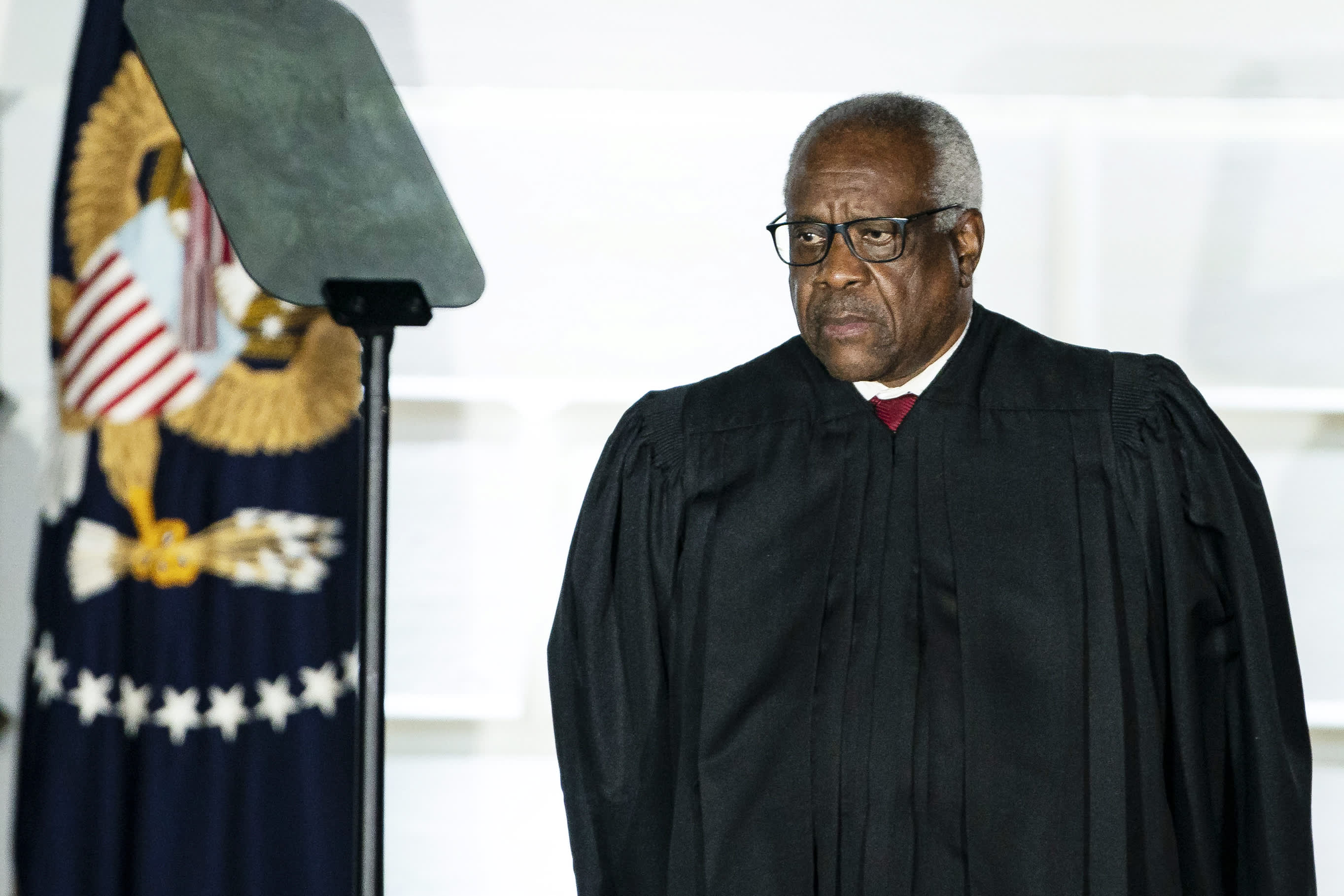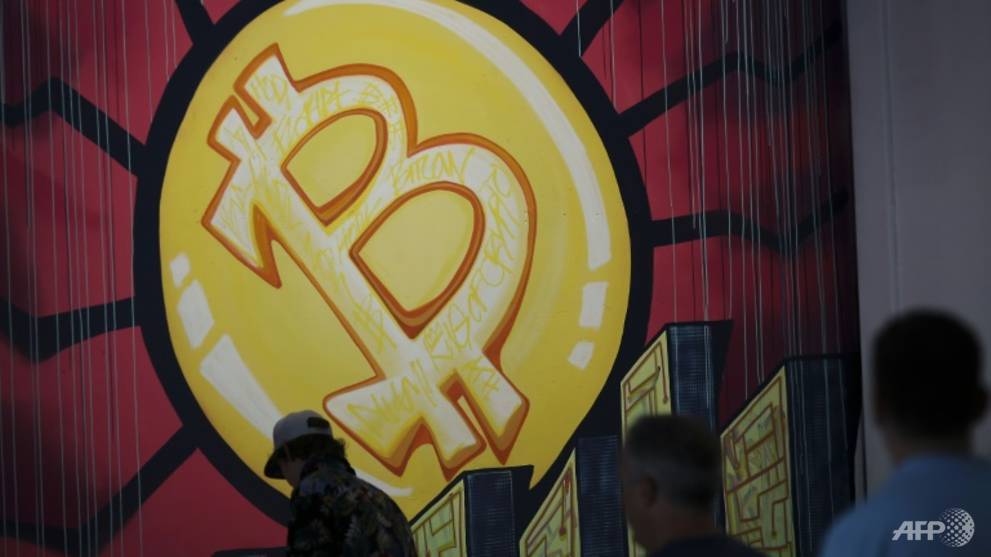 Supreme Court Justice Clarence Thomas on Monday said that federal laws against the sale and cultivation of marijuana are inconsistent, making a national prohibition unnecessary.”A prohibition on interstate use or cultivation of marijuana may no longer be necessary or proper to support the federal government’s piecemeal approach,” Thomas, one of the court’s most conservative justices, wrote in a statement.The court’s decision not to hear a new case related to tax deductions claimed by a Colorado medical marijuana dispensary prompted Thomas to issue a statement that more broadly addressed federal marijuana laws.Thomas stated that a 2005 ruling in Gonzales v.Raich in particular, which determined that the federal government could enforce prohibition against marijuana possession, may be outdated.”Federal policies of the past 16 years have greatly undermined its reasoning,” Thomas added.”The federal government’s current approach is a half-in, half-out regime that simultaneously tolerates and forbids local use of marijuana.” How you can save $1 million for retirement How much the most populous states pay mail carriers Creepy ways your company can spy on you while you work from home Major companies suspend social media advertising over online hate speech This bookshop survived earthquakes and recessions.
Supreme Court Justice Clarence Thomas on Monday said that federal laws against the sale and cultivation of marijuana are inconsistent, making a national prohibition unnecessary.”A prohibition on interstate use or cultivation of marijuana may no longer be necessary or proper to support the federal government’s piecemeal approach,” Thomas, one of the court’s most conservative justices, wrote in a statement.The court’s decision not to hear a new case related to tax deductions claimed by a Colorado medical marijuana dispensary prompted Thomas to issue a statement that more broadly addressed federal marijuana laws.Thomas stated that a 2005 ruling in Gonzales v.Raich in particular, which determined that the federal government could enforce prohibition against marijuana possession, may be outdated.”Federal policies of the past 16 years have greatly undermined its reasoning,” Thomas added.”The federal government’s current approach is a half-in, half-out regime that simultaneously tolerates and forbids local use of marijuana.” How you can save $1 million for retirement How much the most populous states pay mail carriers Creepy ways your company can spy on you while you work from home Major companies suspend social media advertising over online hate speech This bookshop survived earthquakes and recessions.
But not this Jim Cramer on Chesapeake Energy filing for bankruptcy ‘You can’t play perfect defense every day,’ says FireEye CEO of ransomware attacks Full interview with Andreessen Horowitz’s Kathryn Haun on $2.2B crypto fund Jim Cramer on Didi IPO: ‘I would try to get as many shares as you can’ Jim Cramer on the 2021 IPO market: ‘We haven’t seen anything like this in ages’ SPACs intend to give investors better knowledge: Bancorp founder Small caps should outperform over the next few months, says BofA’s Jill Carey Hall Stocks point to a mixed open after S&P 500, Nasdaq close at new record highs Global capital continues to flow into China despite U.S.-China tensions: Strategist Record-breaking heat wave strikes Pacific Northwest, causing power outages Watch CNBC’s full interview with EasyJet CEO Johan Lundgren Thomas referred to several policies that conflict with the 2005 ruling.Among them are memorandums issued by the Department of Justice in 2009 and 2013 that indicated the government would not intrude on state marijuana legalization schemes or prosecute individuals for marijuana-activity if it complies with state law.He added that since 2015, Congress has repeatedly prohibited the Justice Department from using federal money to interfere in the implementation of state medical marijuana laws.”Given all these developments, one can certainly understand why an ordinary person might think that the Federal Government has retreated from its once-absolute ban on marijuana,” he wrote.With 36 states permitting the use of medical marijuana and 18 allowing recreational use, Thomas asserted that marijuana businesses do not experience “equal treatment” under the law.The issue is a tax code provision of that prohibits businesses that deal in marijuana and other controlled substances from deducting their business expenses.The IRS cracks down on marijuana businesses, such as the Colorado medical marijuana dispensary, by pursuing investigations on their tax deductions.
“Under this rule, a business that is still in the red after it pays its workers and keeps the lights on might nonetheless owe substantial federal income tax,” Thomas wrote.The justice also noted a consequence of federal marijuana prohibition, stating that most marijuana businesses fully operate in cash because of restrictions that prevent federally backed financial institutions from providing bank services to these businesses.
This makes those businesses more vulnerable to burglaries and robberies, according to Thomas.All of these issues regarding federal marijuana laws, Thomas argues, threaten the principles of federalism.
“If the Government is now content to allow States to act ‘as laboratories, then it might no longer have authority to intrude on ‘[t]he States’ core police powers …to define criminal law and to protect the health, safety, and welfare of their citizens,'” Thomas said.Legal experts such as Joseph Bondy, a cannabis law expert sitting on the board of the National Organization for the Reform of Marijuana Laws, agreed with the justice’s statement and predicted that arguments about federal marijuana laws being unfair will continue to be made in the future, Law & Crime reported Monday.While Bondy noted that Thomas’ statement may not have an actual legal impact, he told Law & Crime that it still “sends a message that will perhaps soften the views of some of the people in Congress,” including “some of our Republican senators.”.
